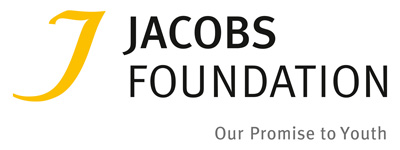UPWIND – Understanding and Improving Daily Cognitive and Affective Within-Child Dynamics in the School Context
The project UPWIND investigates relations among affective, motivational, and cognitive processes in students. The aim is to develop easy to implement interventions tailored to individual children by targeting differences in these processes between children.
Project Description
The project investigates predictors of short-term fluctuations in cognitive performance, as well as emotional well-being and social experiences in students. We target the question, which specific experiences might lead to worse well-being and cognitive performance (e.g., worries or sedentary behavior), and which antecedents might be associated with better cognitive performance and well-being (e.g., positive daily activities or physical activity). Using interventions implemented in children’s daily lives we approach the question if reducing negative experiences (e.g., with relaxation techniques) or increasing positive experiences (e.g., via encouragements for positive activities) leads to improvements in children’s well-being and cognitive performance. The project further investigates differences in the effects of these variables between children: i.e., which children profit from relaxation techniques? For which children might increasing physical activity work better? How can we identify these children? And do these children profit more from intervention measures specifically targeting this behaviour?
The project approaches these questions by applying ambulatory assessment in children’s everyday life. In the first project phase, we have laid down the methodological conditions necessary to approach these questions (Schmiedek & Neubauer, 2020) and we have presented first results describing differences between students in the interplay of positive and negative emotional states with cognitive performance (Neubauer, Dirk & Schmiedek, 2019). Building on this work, we currently develop and evaluate person-centred interventions in the second project phase.
Funding
Cooperations
Publications
Neubauer, A. B., & Schmiedek, F. (2020). Studying within-person variation and within-person couplings in intensive longitudinal data: Lessons learned and to be learned. Gerontology. Advance online publication. doi:10.1159/000507993
Schmiedek, F., & Neubauer, A. B. (2020). Experiments in the wild: Introducing the within-person encouragement design. Multivariate Behavioral Research, 55, 256–276. doi:10.1080/00273171.2019.1627660
Neubauer, A. B., Dirk, J., & Schmiedek, F. (2019). Momentary working memory performance is coupled with different dimensions of affect for different children: A mixture model analysis of ambulatory assessment data. Developmental Psychology, 55, 754–766. doi:10.1037/dev0000668
Further Information
The project is a central part of the strategic partnership between DIPF and the Jacobs Foundation, started in 2017.
Project Management
Project Team
Project Details
| Status: |
Current project
|
|---|---|
| Areas of focus | |
| Department: | Education and Human Development |
| Unit: | Cognitive Development |
| Duration: |
07/2017 – 10/2024
|
| Funding: |
External funding
|
| Contact: | Dr. Lena Wieland, Academic Staff |
